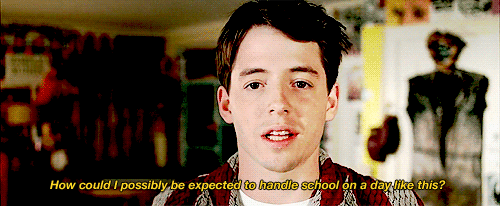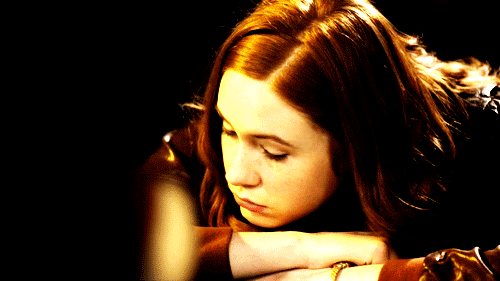
Monkey Business Images / Shutterstock.com
Once you exit the doors of your high school for the last time, you may not know what to expect from the future. Maybe you visited a couple of campuses during the fall when you were deciding where to apply, did an overnight stay with a current student, or even attended an accepted students’ day in the spring, but each of these visits only gives you a glance at what college life is really like. For example, visiting your chosen school for a day and doing a campus tour isn’t going to prepare you for what’s to come; you’re getting the admissions office spiel, not the true nitty-gritty as told by students.
The first day of college may be pretty similar to your first day of high school: a little bit overwhelming, but probably a decent amount of fun. Colleges are pretty good about getting freshmen to campus a few days before upperclassmen and creating an environment where friendships can flourish. On my first day of college, all of the freshmen on my floor were required to come up with a team theme (we chose pirate ship), dress up (I am not lying when I say that I was the boat), and report to the gym to compete in silly Olympics-style events against other dorms and floors. It sounds cheesy, but it was way better than playing the name game a hundred different times. And it did lead to some floor bonding. Three girls from my freshman floor are still my friends today.

3rd Rock from the Sun / Giphy
But other than the fact that in-person social interaction can happen 24–7 and you are now living with people your own age and zero adults, what are the other differences between high school and college?
For one thing, your teachers are not going to hold your hand the way they do in high school. You’ll be given a syllabus on the first day of class and you will be expected to know what your assignments are, what reading needs to be completed, and when certain things should be done. While a professor may make an announcement about a midterm or hand out certain assignments, it is your responsibility to make sure that you get everything done on time. You’re not in high school anymore, so it’s assumed that you’re responsible enough to write down dates in a planner instead of having to be given constant reminders.
Speaking of a planner, use one. Colleges often give them out for free on campus, so pick one up at the start of the year and use it to keep track of assignments, reading, and test dates. For the most part, your workload is going to be heavier than it was in high school, since you’ll be spending less time in class. College classes generally meet for three hours a week, but you may go to class once a week for three hours, or three times a week for one hour. For every hour you spend in class, you can generally expect to do three hours of work outside of class, so if you’re taking three or four classes each term, you’re going to have around 30 hours of class-related work each week. The harder your classes or the closer it gets to finals, the more time you’ll want to spend studying.
Next, in college, your grades are your responsibility. Yes, technically this is also true in high school, but in high school, if your grades are low, your teacher will warn you and you can generally ask for an extra credit assignment. Not so much in college. There will be a grade breakdown on the syllabus, but you’ll have to keep track of how you’re doing on your assignments and in the class overall (though it may be posted on a class website if your professor uses one). And if your grades are sinking, you’ll need to go to your professor, not the other way around. And extra credit? It’s not really a thing, unless you get lucky with a sympathetic professor. Better study hard and make sure you get to every class because professors aren’t afraid to issue failing grades.

Ferris Bueller's Day Off / Giphy
Finally, attendance. Good attendance is necessary if you’re going to do well in college, since professors often lecture about material that you won’t find in detail in your textbook. If you skip a class, you may miss an activity, a pop quiz, or turning in an assignment, and without a note from the dean of students or a valid excuse, you won’t get the chance to make them up. Turning things in past the deadline may result in an automatic deduction of a certain percentage, or in worst case scenarios, a zero. Skipping a class where you know the professor doesn’t check attendance just so you can get an extra hour of sleep may sound like an excellent idea, but when it turns out your grades are falling as a result, you’ll think twice about doing it again.
Real Answers from Real People
I asked 10 former college students the question “how is college different from high school?” Here’s what they had to say:
“College was the perfect time to discover new interests. Universities offer many more courses and activities than high schools. I had the opportunity to find my niche.” - Jamie N.
“I think that college requires a lot more self-motivation, since the professors depend on the students to complete the assignments without constant guidance. High school was, for me, more about quantity and less about quality of assignments, as well. Both high school and college had many assignments that were tedious and not necessarily related to my future career.” - Sydni M.

Giphy
“Unlike in high school, where everything is planned out for you, in college you set your own priorities. This means the responsibility of fitting everything you want to do in a given week lies solely on your shoulders. You need to learn how to manage your own time and set priorities for the things that are important to you.” - Chris C.
“The biggest change I remember when transitioning from high school to college was that there were suddenly so many choices. Not just simple ones, like what to eat or what to do for the weekend, but big ones, like what career path should I choose and what type of friend am I going to be. Everything was suddenly so complicated.” - Morgan A.
“I think college is much more based on learning how to think as opposed to specific material. Also, college is much more about growing as a person and learning how to live and survive in a completely new environment.” - Adam D.
“In college you have a lot more freedom. You choose whether to join a club, do an activity, or even whether to go to class. And with that freedom comes new responsibilities. It’s challenging to learn how to manage yourself and your time. It’s also incredibly rewarding when you succeed at doing it!” - Karly P.

Braveheart / Giphy
“College was more relaxed for me. I didn’t feel the need to follow cliques, and I could really focus on my interests and talents, not what was expected by my mentors or family. Ultimately it was liberating and helped me grow academically and socially.” - Stuart A.
“College presents many more choices to the student than high school—it isn't prescribed. You have the freedom to choose your own course of study, allowing room to be truly inspired by a professor, research topic, or course that can change your outlook on life. You can make your own path and fill your time however you wish. College goes by fast!” - Caroline M.
“For me, college was an experience of relearning how to learn. It took a few semesters for me to get the hang of working on my own schedule, doing massive amounts of homework, and relying on very few grades in a course. It was difficult at first, but in the end college was a much better experience than high school.” - Devin C.
“For me the biggest difference between high school and college was the amount of studying I had to do. I hardly had to work in high school, but college really challenged me and I had to learn how to study.” - Karen R.

Harry Potter and the Sorcerer's Stone / Giphy
If you asked me, my answer would be this: “The whole concept of spending four hours in a lab once a week and having that be considered part of a science class was a little unnerving. It also made scheduling other classes a nightmare.” Everyone’s college experience is unique, and what you experience may vary between professors and colleges, but generally, colleges allow you much more freedom than high schools. And, as Karly P. said, with freedom comes responsibility, and that sums up the college experience nicely. Enjoy your freedom, but take responsibility for your assignments, your behavior, your attendance, and your grades. Your academics and your friendships are what you, not a professor, a coach, or a roommate, make of them.
-
Finishing High School Strong: What to Do after You’ve Been Accepted
-
Why You Should Participate in Extracurricular Activities during High School
-
Using Your Winter Break Wisely in High School
-
Finding a Summer Job in High School
-
Preparing for AP and IB Exams: Advice from Student Caffé
-
Why It’s Important to Prepare for College in High School
-
What We Wish We’d Known about Graduating High School
-
Community College: The Unsung Hero of Higher Education
-
Extreme Makeover: High School Résumé Edition
-
Preparing for Standardized Tests
-
Things I Wish I Knew before I Left for College
-
Why Do Standardized Tests Matter?

